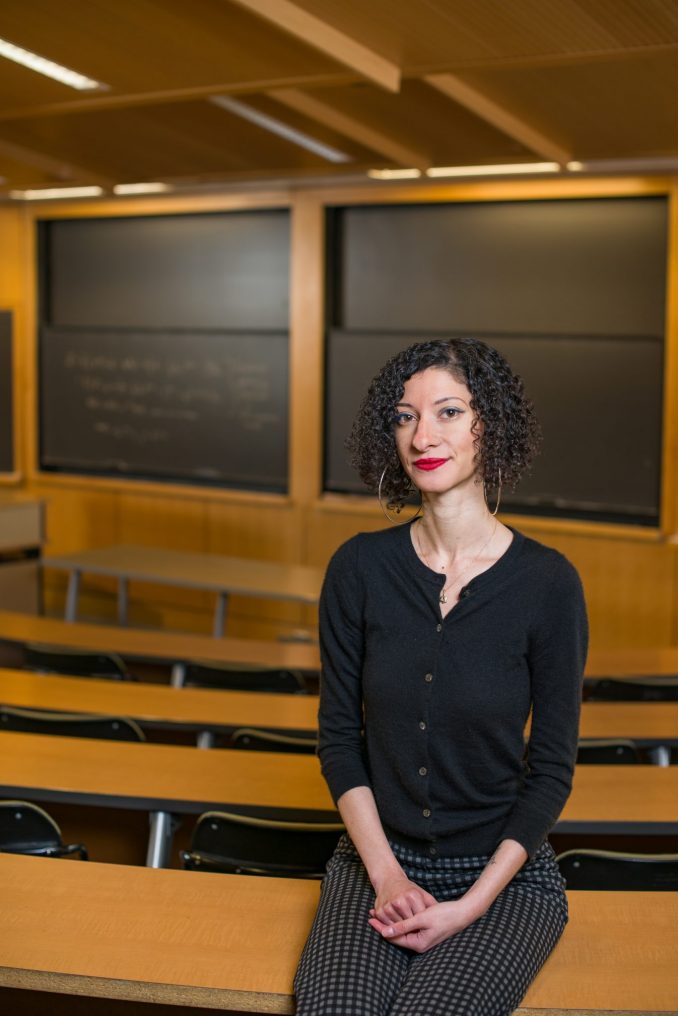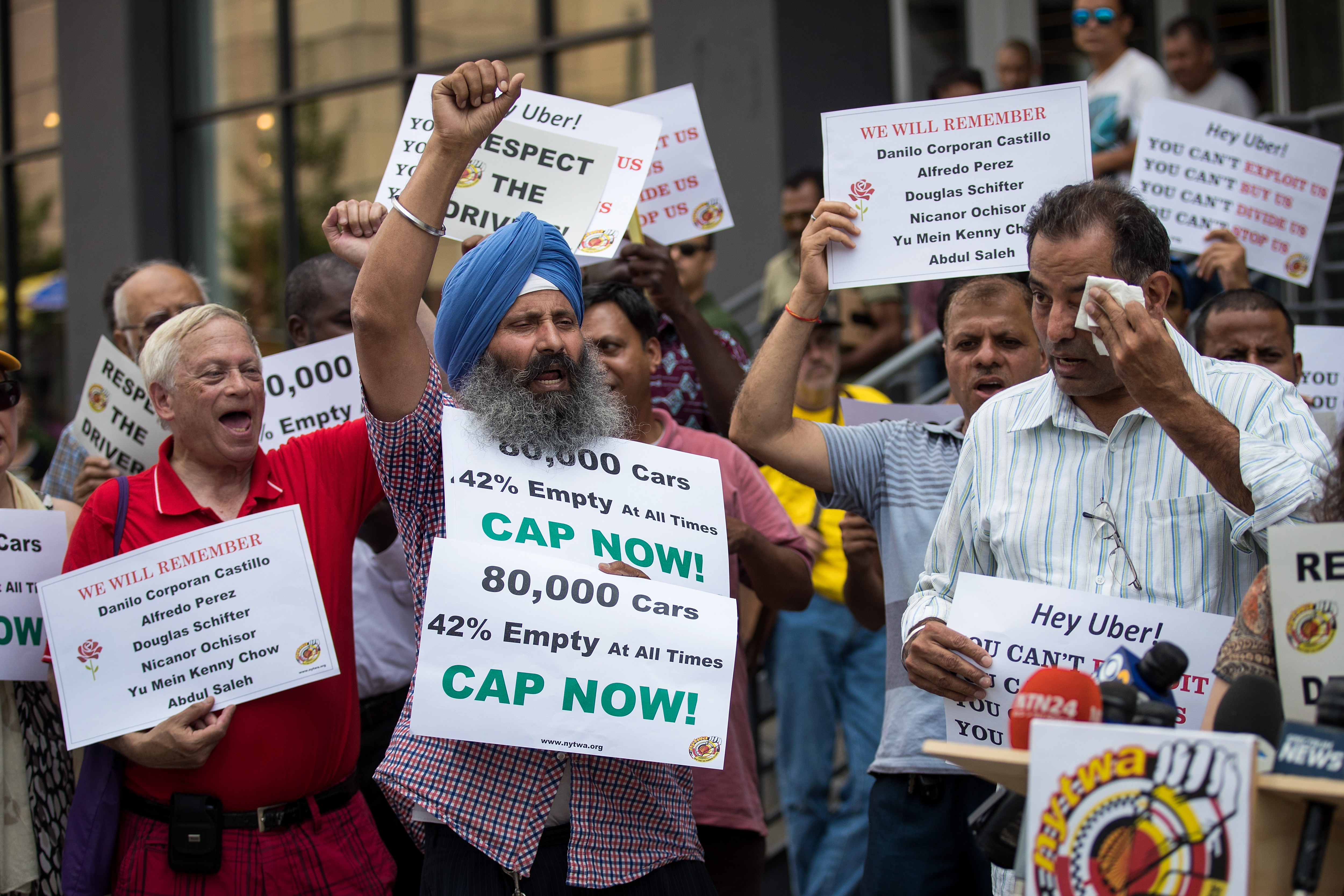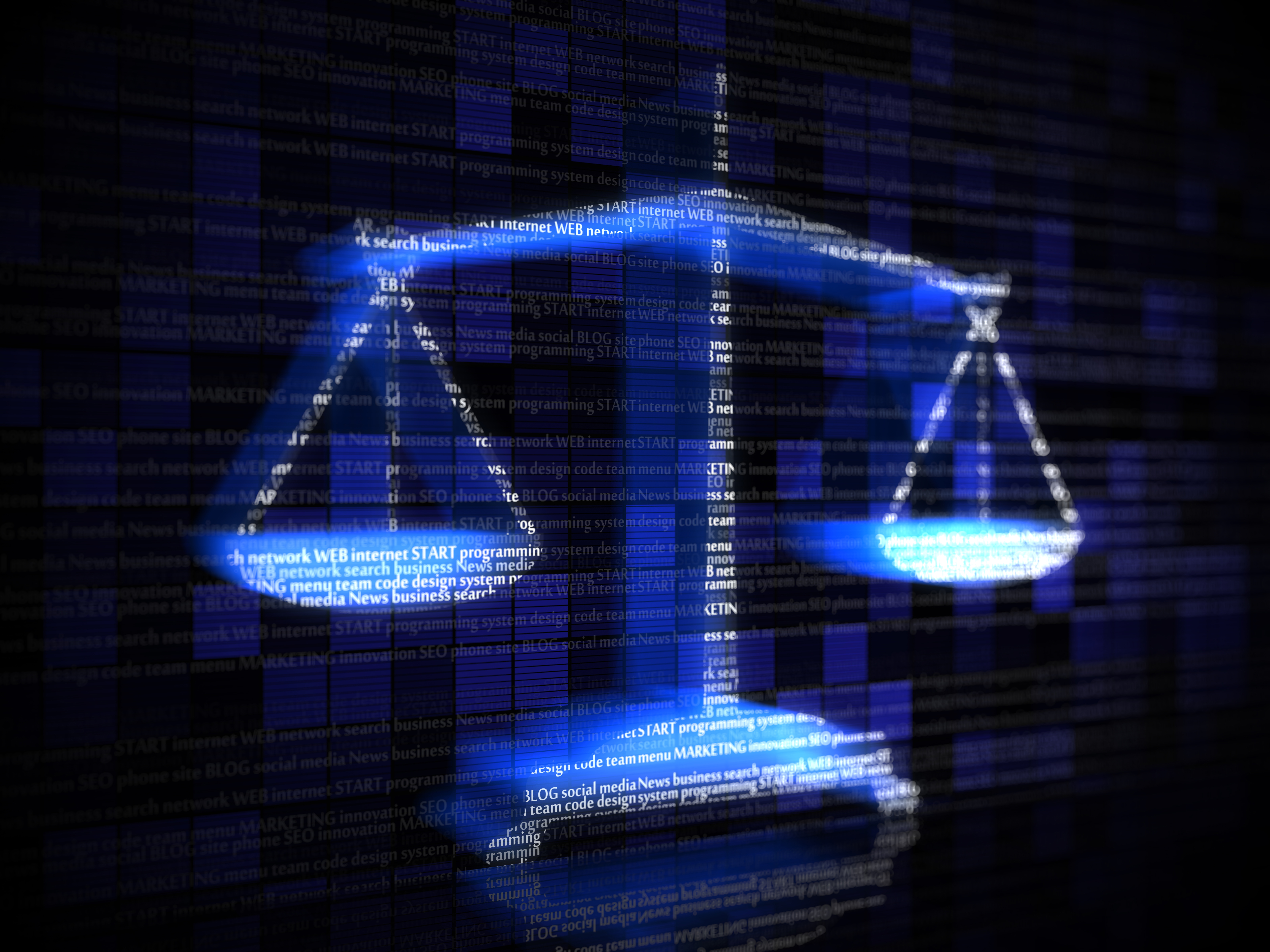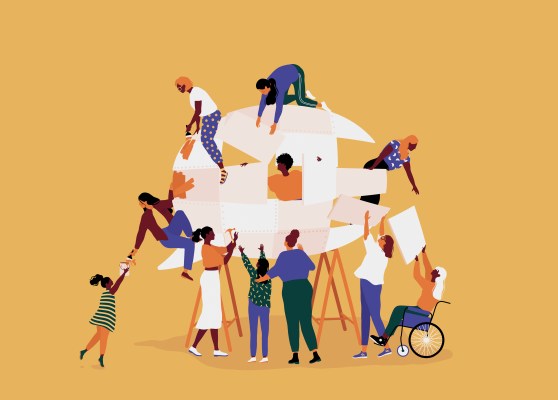Chanda Prescod-Weinstein is Assistant Professor of Physics and Astronomy and a Core Faculty Member in Women’s Studies at the University of New Hampshire. She is the lead “axion wrangler” and a social media team member for the NASA STROBE-X Probe Concept Study.
The first Black woman in history to hold a faculty position in theoretical cosmology, Prescod-Weinstein is also a Twitter activist who frequently goes viral, a prolific writer and editor in multiple genres and disciplines, and the author of a soon to come column in the New Scientist, and a 2021 book, The Disordered Cosmos: from Dark Matter to Black Lives Matter.
A millennial, she is at the vanguard of a new cohort of brilliant, young, tech-savvy academics who are conducting important research in science and technology while also gracefully shouldering the responsibility of helping transform the way many of us think about what it means to be a scientist or technologist and who we think of when we imagine those categories.

Why interview a theoretical cosmologist for this series on tech ethics? Because tech, like science, has much work to do in reckoning with issues of race, gender, inclusion, and intersectionality.
As I spoke with her recently, I pictured young women and men of color or other marginalized backgrounds, looking to find their own place in the extraordinary world that is our tech culture/industry (I call tech a religion to underscore its size and influence, but more on that some other column) and wondering if a) they will be given a just and equitable opportunity to demonstrate their innate abilities; and b) if in their quest to “make it” in this world they will have to somehow ‘sell out.’
Prescod-Weinstein tells the story, below, of a profound ethical dilemma she faced at the very beginning of her career in science.
In speaking of her own experience, she mentions Daniel Berrigan, about whom she first read in an Adrienne Rich poem about the“Catonsville Nine:” a group of anti-war activists who, in 1968, took hundreds of draft files in wire baskets to the parking lot of the draft board in Catonsville, MD. Berrigan, his brother and fellow Catholic priest Phillip, and their seven colleagues dumped the files out, doused them in homemade napalm, and set them on fire.
Berrigan later explained he was inspired to take such dramatic action rather than merely talking about ethics, because he believed that mere talk would place him “in danger of verbalizing my moral impulses out of existence.”
Prescod-Weinstein’s story, and her reference to Berrigan, offer a parable about the need for inclusion and justice in today’s tech world. When we talk about tech ethics, after all, are we talking mainly of more academic discussions about self-regulation or incremental policy changes? Or will we eventually grapple with burning issues to which we can only respond meaningfully with hard choices or dramatic actions?
What we all make of this, and of other ethical questions raised in the conversation below, will determine so much about the future of ethics in tech.
Greg E.: You have been playing a prominent role in facilitating conversations about justice, inclusion, and intersectionality in the science world. I wanted to speak with you about your activism because it seems to me discussions are also needed in the tech world, but seem to be happening even less in tech. What do you think?
Chanda P.W.:
I [have] been thinking a lot about why we have this boundary between technology and science in the first place, and how that has shifted from a governmental standpoint, from physicists being where advances come from, to engineering really being perceived as the place where knowledge advances, and important scientific and technological advances come from.
I think we also happen to be in a time where our understanding of what disciplines are and how they are socially located in our hierarchies of power is shifting.
Greg E.: Yes. You recently facilitated an excellent webinar for the Union of Concerned Scientists, called “Beyond the Trend of Decolonizing Science.” At the beginning of the webinar you tell a story about an ethical dilemma you faced at the beginning of your career as a scientist, upon being offered a job in Hawaii, working on a telescope. That telescope was built for scientific research, but it is also very much a form of technology.
Chanda P.W.: True. And certainly that story was about me asking myself what my values were as a scientist.
What happened was during junior year of college, as I was thinking about applying to graduate school. I had quite a difficult time my first few years of college; all four years were really difficult for me. Some of that was, college is intellectually challenging. But I also found Harvard to be a really hostile environment for me, socially and psychologically. I struggled with my classes, struggled with, “do I belong? Can I find a place for myself in physics?”
At the time, the submillimeter telescope was just being brought online on Mauna Kea in Hawaii. There was someone who had been a year ahead of me in college who I guess had taken a year off; he’s now basically tenured faculty equivalent at a scientific institution. So this is someone who’s still in the field that I still actually have some contact with.
He had had a job for a year at the Submillimeter Array and they [essentially] said, ‘Okay, so you’re going to go back to school. Who would you like to replace you?’
He emailed me and said, ‘Hey, I had this job for the last year. Would you like it? I can basically tell them to hire you.’ He said something like, “The salary will be about $50,000,” which was more than twice what my mom had raised me on. I was at Harvard before low-income Pell Grant students went debt free, so I was in the middle of accruing debt to go to college. This was an incredible financial opportunity for me, and I also understood that if I did this and got good letters of recommendation on the other end of it, then any struggles with my GPA or whatever from my early years in college would be ignored when I applied to graduate school. This was a way to write my ticket into a top graduate program on the other end. I was very excited about this and wanted to tell my mom more about it.
I used the Yahoo Search Engine because that’s what we all did; this was pre-Google. I looked up Mauna Kea to learn more about it. One of the things that came up was that there were native Hawaiian people protesting outside of the telescope; [they] had an ongoing picket line.

Image via Getty Images / Julie Thurston Photography
Actually, part of the story I didn’t tell in that webinar was, this was just a few months after I played an active role in the 2001 Harvard living wage campaign sit in and tent city, to increase wages for the janitors and dining staff at Harvard. And I come from a union family. My dad was a local president and then a long-term staffer for a national union. So for me, crossing a picket line was a big no-no and it was very fresh in my mind because I had just sacrificed my grades for a semester, basically, to organize picket lines and feed a sit-in and organize a tent city, the whole thing.
So I wrote back to this guy -I had already written back to him excitedly and said, “Oh I’m so excited to do this,” – and then I wrote back to him and [said,] “I looked into this, there’s a picket line, and I can’t cross it.”
He wrote back and said, “Let’s jump on the phone and talk about this because I think there’s nuance to this situation that you may not appreciate.” I was really afraid…this is recalling a line from the Adrienne Rich poem, “The Burning of Paper Instead of Children,” where [anti-war activist and Catholic priest Daniel Berrigan] said he was afraid of losing his moral impulse.
I was afraid if I got on the phone with him, I would somehow be convinced I needed to do this in order to succeed as a scientist. I think I spent a lot of my time at Harvard really afraid of losing my moral compass, that I would lose my sense of direction because I was in the corridors of power and because I had been offered this opportunity to not be responsible to the grassroots anymore.
To me, part of my [experience at Harvard] was, “you have now arrived and you never have to look back if you don’t want to.” I felt like I was spending the whole time fighting to say I want to keep looking backward. I want to take the community with me. I don’t want to go alone.
And if I took this job, that was a step in the direction of saying … “forget the Lakota people who helped raise me, forget my commitments to native and indigenous people, because now I can succeed as a scientist if I forget about them.” For me, that was a big moral question.
Fast forward to the conversations we’re having now about the 30-meter telescope on Mauna Kea. One of the major arguments people have made for building the telescope is that it will bring technological jobs to Hawaii.
So there’s this element of … I get these emails sometimes from people who are really angry and say, “You have stood with the Mauna Kea protectors.” They never called them the protectors, but that’s what I’ll say. “You have stood with the Mauna Kea protectors, because you’re against native Hawaiians having technology. You’re against native Hawaiians having jobs.”
I think it’s such an interesting framing, this idea that [we need the] 30-meter telescope in order for native Hawaiians to be seen as technological people. There’s so much to unpack there. And then also as someone whose family comes, at least for the last two centuries, from Barbados and Trinidad, I’m very conscious of these discourses about how do islands function under capitalism? What kinds of jobs are necessary? How do you bring jobs to places where you can’t have a state that’s just wheat fields when your island is 21 by 14 miles or whatever it is?
At no point in that whole conversation is there a question of, ‘how does any of this fulfill for Kanaka Maoli, native Hawaiian people, how they self-envision what it means to be Kanaka Maoli, Kanaka Oiwi?’ Rather, this is about, ‘if you’re going be part of the modern world, then you’re capitalist and you’re technological and by technological, we mean whatever people who are the descendants of enlightenment science say is technological.’
Greg E.: Thank you. They say some people speak in paragraphs; you just spoke in a chapter, and it’s a chapter I hope people will read and consider.
I want to ask about your work on decolonization, and intersectionality. First, you’ve created a popular online resource, “The Decolonizing Science Reading List.”
In that list and in the webinar you recently led for the Union of Concerned Scientists, a major takeaway for me was that decolonizing is not just a metaphor, and should not be used primarily as a metaphor, because in our scientific and technological culture we are still very much in the midst of colonialism and its legacy.
What do you most want people in science and tech to understand about colonialism in their own worlds?

The Image Bank / Getty Images Plus
Chanda P.W.: Something Eve [Tuck, a professor of critical race and indigenous studies at the University of Toronto, and co-author of the influential article, “Decolonization is not a Metaphor,”] says in the webinar and has said in conversation with me, which I think is okay to repeat, is that if she were to name the article now, she might say decolonization is not only a metaphor.
Decolonization has different meanings and different contexts. For people who are indigenous in Africa, it takes on a different meaning than in different parts of the Americas, right? So some people are living in settler colonial states and some people are living in post-colonial states. Some people are living in imperial states. Some people are living in Europe. Some people are living in South Africa, some in Ghana.
Those are all very different contexts in relation to how colonialism has shaped the local community and its relations with other communities. I think when we’re talking about [colonialism] we’re talking about something [big and heterogeneous] that has relied on what we call science or technology.
Greg E.: In one of your essays on intersectionality, the following paragraph stood out to me as important and equally applicable to tech as it is to science:
“Intersectionality demands that we admit that whiteness and objectivity are not interchangeable and indeed that this association has been damaging. Intersectionality demands that we accept subjectivity is inherently a part of the process. Intersectionality demands that we reconfigure the scientific community to reflect this. This means confronting radical and necessary transformation. It means that instead of framing anti-racist/anti-homophobic/anti-sexist etc. efforts in the scientific community as an expedition in better preparing students to join us, we must better prepare ourselves to become a space where students, who are already prepared in their own interesting and unique ways, naturally fit in.”
How have people in the scientific community responded to that message?
Chanda P.W.: I think I have to start by trying to set out what I mean when I say intersectionality.
Greg E.: Please do.
Chanda P.W.: Step zero in discourse about intersectionality in tech is that the word intersectionality gets thrown around a lot, and I don’t think people are all using it the same way or even understand its original formulation. In my mind, intersectionality is the phenomenon whereby forms of subordination, so that’s like the legal way of saying oppression, overlap and intersect to produce distinct forms of subordination.
So, being black and being a woman at the same time produces an experience distinct from the subordination of being a black man or being a white woman.
The reason Kimberle Crenshaw coined the term intersectionality was specifically to identify this phenomenon wherein legal cases, black women were being rejected as representatives of classes: of the legal class of black people and the legal class of women.
Because they were black, they were not representative of women. Because they were women, they were seen as not representative of black. She called this phenomenon intersectionality. It has since really evolved into a framework and a discussion.
So in that talk that you were quoting from, I’m talking about intersectionality as an analytic framework that looks at how power is distributed and how power is entangled with peoples’ ascribed identities. By ascribed identity, I mean your gender identity, your race.
That this is something ascribed to you through social phenomena. That no, there isn’t necessarily an objective gender construct or an objective race, because race didn’t even exist until a few hundred years ago, basically, as a concept.
What I’m talking about here is an analytic framework that looks at how power is distributed and how that’s related to people’s identities. The idea of objectivity has been assigned to one group of people who holds specific ascribed identities; very specifically, white men. Some people might say well cis, straight white men, able-bodied as well, but I actually think that the fulcrum that that centers on is white masculinity and white males, as in white patriarchy.
Intersectionality as an analytic framework can completely shift our understanding of what our social relations are and how those social relations affect what we work on and how we work on it. How we understand the impact Uber and Lyft have on a largely people of color taxi workforce in New York City, and what our sense of responsibility is if we are working at Uber and Lyft, as we’re thinking about the impact that we have on these people in a community that maybe we spend no time in because we work in the San Francisco office.

Image via Drew Angerer / Getty Images
Greg E.: There’s often a glorification of the idea of disrupting things, right?
Chanda P.W.: Yes.
Greg E.: In fact, the publication in which this interview will be published holds a large annual conference… which I’ve never been to, but where I may be doing some work this year; it’s called “Disrupt.”
What I think I hear you pointing out is that sometimes “disruption” is not just one slightly older industry by another slightly newer industry; it’s the disruption of real lives and communities by a certain way of thinking and a kind of entitlement.
Chanda P.W.: Yes. You have to think about objectivity, like who’s the subject and who’s the object in [speaking] about disruption? What are you disrupting? [Take] the taxi industry. What composes the taxi industry? It’s not cars driving themselves around, although I think Uber would be happy if that was the case.
The cars are being driven by people, so you’re disrupting the people. What does it mean to disrupt people? Or a community of people? What does it mean for the lives of the people whose workforce and workplaces are being disrupted?
I have kind of a bias about the time when I came of age. I graduated from college at 2003 and I remember at the time I graduated, I heard a statistic that something like 60% of my graduating class from Harvard went into financial services in one way or another. They were either going to Wall Street or into consulting.
People around my age are the ones who really got into these narratives of disruption. We were funded by Gen X-ers, but I think a lot of the ideas are coming from [millennials]. Mark Zuckerberg’s older sister Randi, who was with Facebook for a long time, was in my class. We know several people in common. We didn’t know each other well, but we knew people in common. Mark was just a few years behind me.
I think we were socialized into an environment that didn’t see people that we didn’t have contact with as people; rather, they were numbers in our algorithms.
I think that this comes back to Safiya Noble’s [work in her book] Algorithms of Oppression: that when you start looking at the algorithms just as computer code and forget that there are people on the other end, it becomes a lot easier to be disruptive and not realize those are lives that you’re interfering with.
That those are people. These are taxi drivers who are losing everything.
Greg E.: I want to go back to what you said earlier about white masculinity as the kind of fulcrum for, well, the opposite of intersectionality. That point is going to be provocative and challenging for some readers, so I’d love to personalize it more. Can you share a story or anecdote that will help people to better understand what you’re trying to say there?
Chanda P.W.: Right now I’m thinking a lot about the social dynamics around me making these comments about disrupting taxi drivers lives, when I have used Lyft quite a bit. I don’t use Uber for various reasons, partly because my husband researched it and found Lyft does better background checks…it’s closer to taking a taxi from the point of view of my safety.
What are the power dynamics of me having these thoughts, but also using [Lyft’s] services? I think that that’s an example of me kinda looking at my power in this situation, which is that I don’t have any friends who are taxi drivers.
So it’s a lot easier for me to say well, I sorta disagree with the lack of regulation of Uber and Lyft but I’m also still going to take Lyft because it actually doesn’t impact anyone in my immediate social or familial circle for me to make that choice.
There are various safety considerations and other considerations given the amount of traveling that I do and the fact that as a black woman, there’s only so much of the world’s problems I can take on feeling like I’m responsible for fixing every five minutes, making pure choices.
I also look to Alexis Shotwell who is a philosopher of science in Canada, [who says] purity isn’t actually a choice that can ever work; we’re always making choices in an impure context.
So that’s an example of looking at your social location and trying to analyze how does that shape my relations with the people around me, the people I perceive myself as being directly in community with, and the people I don’t have direct contact with on a regular basis.
Moving from my personal perspective as a black woman to then talking about the social location of a white man making those same decisions, there are all sorts of pressures that my white male colleagues are not dealing with in that context.

Image via Getty Images / Delmaine Donson
They’re less likely to be called on to travel in order to speak about their personal experiences with oppression because they’re less likely to have them. Maybe they’re not taking Lyft as much because they don’t need to think about how will I [safely] get from the airport to point B.
Also, people are not writing article after article that ‘white men are gonna save us,’ so listen to and pay attention to white men. Largely that pressure is on black women. We are supposed to be kind of moral beacons for the American community. So there are all sorts of internal and psychological pressures that are lifted [for white men].
[Another] really good example is hair. In a lot of places in the United States, I could be fired from my job if my boss decided the hairstyle that I currently have my hair in… my hair is just out, natural curly; that is considered unprofessional hair in certain environments. It’s legal in the state I work in, to fire me for it. That’s not something that white men have to worry about, largely.
Greg E.: I would think if anybody should be fired for their hair, it would be me.
Chanda P.W.: Yeah. About like your hair texture being, and of course there’s variability about that. I was just at one of my rabbi’s houses on Friday evening and her wife’s hair is actually quite similar to mine, even though her wife is white. But I do think there are pressures on what’s considered normal and not normal and that normalization centers around what is typical for a white man.
Greg E.: Yeah, I’m familiar with that idea, and I tend to agree with you. I was just making a joke about my bald head. I’ve always sort of thought I should be fired for my hair.
Chanda P.W.: [Politely acknowledges Greg’s attempt at a dad joke, then moves on:]
Familiarity tends to orient around people who share your class identity, your race identity, people who your gendered experiences. You know, it’s not an accident really that apps that focus on reproductive cycle issues tend to be produced not by men but by women. Social identity shapes your sense of what technologies are needed, what technologies are supposed to do, and what sacrifices are acceptable in the process of deploying a new technology.
The taxi industry has problems. There are things I could agree with [there]. Just to go back to this example: there was kind of a monopoly, and an artificial shortage, and also for a lot of black people, using ride-sharing guarantees they will actually get picked up by their ride, whereas taxis used to drive by folks a lot.
But what if the disruption had been, working with taxi companies to integrate taxis into an app, rather than something people tried to cobble together on the other end? There are different ways of being in relation to each other as we’re thinking about technologies being developed and used. What impact you think a technology will have is very much shaped, again, by your social identity. So there’s that app, Nextdoor, that allows you to report on activities in your neighborhood.
Greg E.: That doesn’t sound good.
Chanda P.W.: It’s become kind of popular.
Greg E.: I think that’s Facebook you’re thinking of.
Chanda P.W.: Which one?
Greg E.: No, I’m kidding. But it basically sounds like how people use Facebook.
Chanda P.W.: Yeah, no, there’s this app where you sign up and then you can actually arrange for everyone in your building to get an invitation to sign up for it. So, in fact, we had new people move into our building in Cambridge who, because of the way property values have worked, definitely paid a lot more for their condo than we did; they’re in a different socioeconomic class than I am.

Image via Getty Images / alengo
They signed up for this and we got a postcard saying, “You’ve been invited by [name omitted] to participate and join in this app.” I took one look at this and it was like, this is how you get black kids shot. Because the next thing you know, you’re like, are black people supposed to be in our neighborhood? I’m just gonna report that and maybe one of the neighbors feels uncomfortable seeing black kids that they’re not familiar with, and next thing you know the cops are being called.
Greg E.: We’ve seen this countless times, including with Henry Louis Gates Jr.
Chanda P.W.: Right. So I think a lot of people in Cambridge think it can’t happen here because we’re such a liberal and progressive community, but it happened to one of the most preeminent scholars at Harvard University. Not just in his department. He’s one of the best-known scholars from the entire university.
Greg E.: He’s one of the most recognizable scholars in the world!
Chanda P.W.: Right. Exactly. He’s one of the most recognizable scholars in the world. He was still accused of breaking into his own house.
I’m fairly light skinned and I think that is less likely to happen to me, but I also don’t know how any individual is going to [react to me], like I was at an academic thing a few weeks ago where a white person made a comment about the darkness of my skin.
A lot of black people would perceive me to be light-skinned, but that’s not always how white people see me. I don’t think the people who created the app are thinking, ‘I want to get black people in trouble,’ although honestly in this society you don’t know for sure that that’s not what people are thinking.
If it wasn’t clear to people before November 2016, it’s clear now that there are people who actively have those thoughts. Even if they weren’t having those thoughts, they certainly weren’t thinking: “when I developed the technology that I’m developing, how does this impact the black people in my community?” They’re not necessarily asking themselves, “if there are no black people in my community, why?”
So again, your social identity shapes what technology you think is valuable, why you think it’s valuable and who you think should be sacrificed on the altar of that technology’s advancement through society. I think a good example, which I wrote about for Slate last year, was a cosmologist using cosmology algorithms, so astrophysics algorithms, to help Baltimore find houses that they believed nobody was living in.
And this was very clear to me and to activists who were working on the ground a technology that could be readily abused by the city for gentrification.
Was the cosmologist thinking he was trying to harm the community? No. But do we have any ethical training as part of our scientific education, to get us to ask those [ethical] questions? No. Part of what’s interesting about a scientific education is, it’s all about asking questions, but not about asking the question: what will this do to my world?
